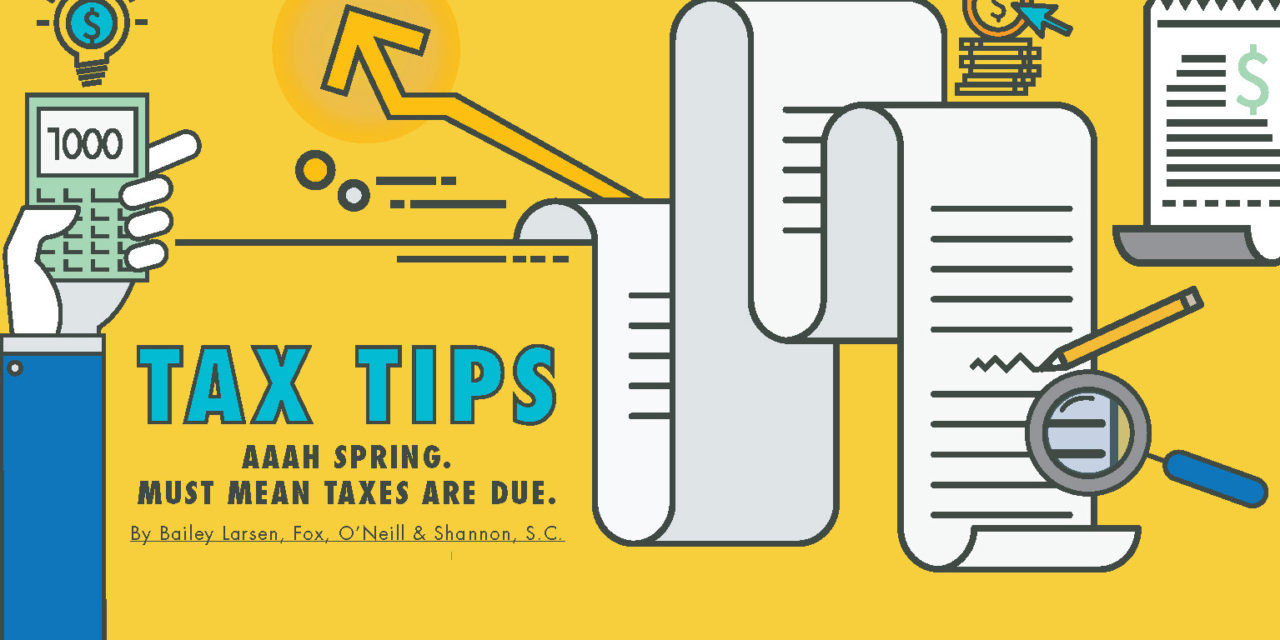By Bailey Larsen, Fox, O’Neill & Shannon, S.C.
Spring is such a wonderful season. Snow melts, flowers bloom, birds chirp, sidewalk cafes bustle, and hope springs eternal for the Brewers.
There is just one problem. Spring also means our individual tax returns are due. April 18, 2017 is the deadline this year, and it is fast approaching.
While tax season may not be your favorite part of spring, the following tax filing tips can ease the process and prevent the assessment of tax penalties.
File on time. Individual tax returns are due on April 18th this year. File your returns on time to prevent the assessment of a late filing penalty.
Start Preparing Now. Even though you have until April 18 to file your returns, do not wait until the last minute to file them. If you rush to beat the deadline, you may miss out on tax savings or forget to include necessary information. Check your work closely. An error can delay the receipt of your refund, or could cause the IRS to further audit your tax return.
File for an extension if necessary. If you do not have all of the information necessary to complete your returns by April 18th or are otherwise not able to complete your tax returns by April 18, you can file for an automatic six-month extension. Your extension request must be filed by April 18.
Note that if you anticipate that you will have a balance due on your tax return, you must pay any estimated amount of tax liability due upon filing for the extension.
Make any payments due by April 18th. If you owe taxes, but cannot pay the full amount due by the April 18 due date, you should nevertheless file your returns on time. Make a payment as large as possible, and apply for an installment payment agreement with the IRS.
Your payment will reduce potential penalties and interest charges.
Consider making a contribution to an IRA or other retirement plan. You can make IRA and certain other retirement plan contributions right up to the tax filing deadline up to the tax filing deadline and include them in your 2016 tax return in order to reduce your taxable income. For 2016, the maximum IRA contribution is $5,500 ($6,500 if you are age 50 or older by the end of the year).
Ask Now! If you have questions related to filing your 2016 tax returns, contact your attorney or accountant now – don’t wait until baseball season is underway or it may be too late.





